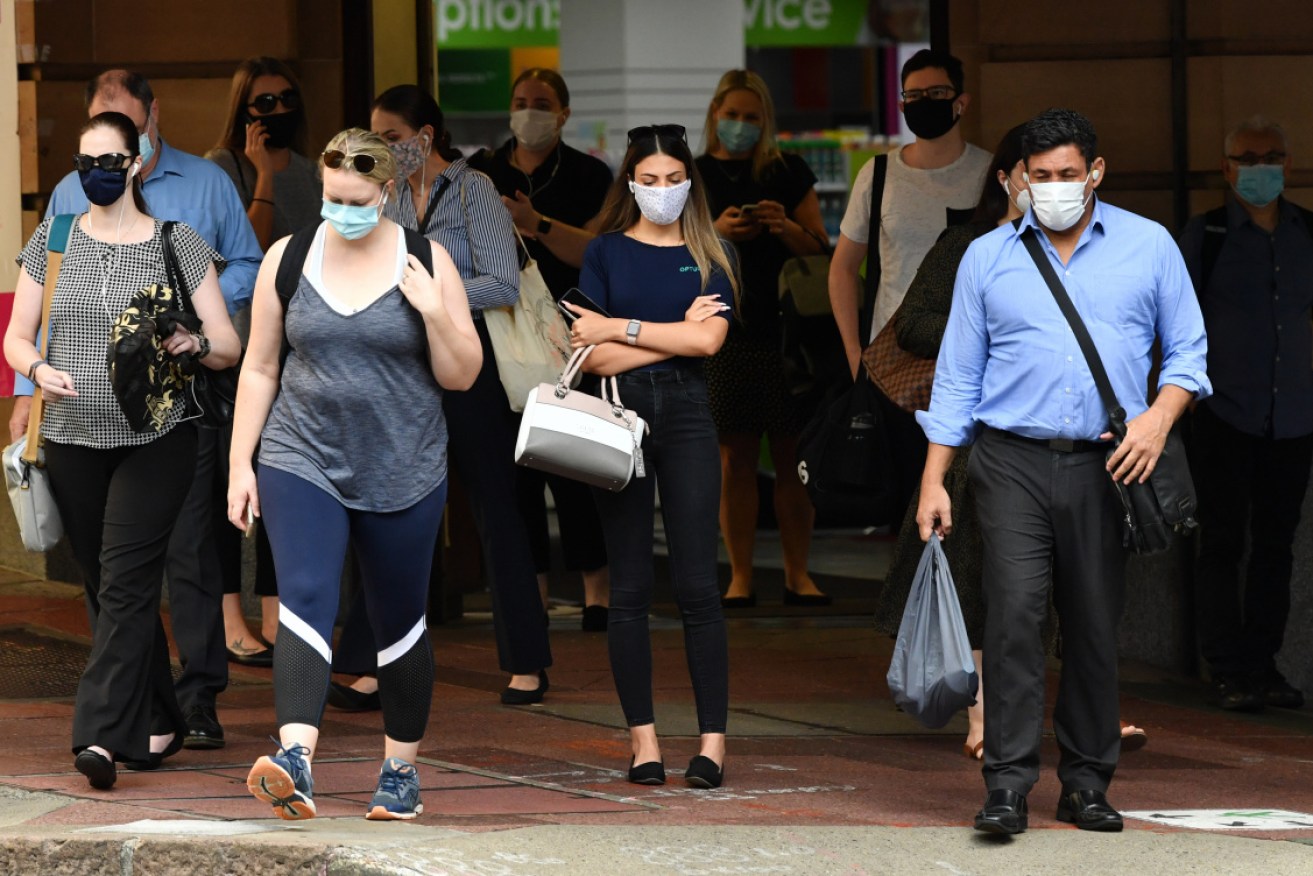Long COVID on the rise, inquiry told


NSW will no longer require people to report positive rapid COVID tests. Photo: AAP
Long COVID clinics across the country are being inundated with requests for assessments from patients struggling with ongoing symptoms, an inquiry has heard.
Doctors told the federal parliamentary inquiry into long COVID and repeated virus infections on Wednesday they were struggling to keep up with demand and waitlists are increasing.
At least 10 million Australians have been infected with COVID-19 and it’s estimated 3-5 per cent will develop long COVID at some point.
Long COVID is characterised by long-term health issues, including heart palpitations and extreme fatigue, which usually arise three months from the onset of the virus, with symptoms lasting at least two months, according to the World Health Organisation.
“Our waitlist is increasing because what we’ve observed is that it can take some time for the recognition of post-COVID conditions, particularly with the fatigue-predominant types, to reach us,” Royal Children’s Hospital Associate Professor Shidan Tosif told the inquiry.
Patients are usually referred to specialist clinics through a GP and while there is no official cure, symptoms can sometimes be treated on a case-by-case basis.
The inquiry by the House of Representatives health committee is investigating the economic, social, educational and health impacts of long COVID and repeat infections in Australia.
It comes after chief medical officer Paul Kelly said Australia was “not seeing a major picture of long COVID”.
“For the majority of Australians, we were not exposed to COVID before we had at least two vaccines,” Professor Kelly said in September, on the day it was announced that mandatory COVID isolation would end in Australia on October 14.
“We know that the major risk factors for long COVID are having had infection before vaccination, being unvaccinated, having severe illness and having other types of COVID that were not Omicron.”
But infectious disease physician Irani Thevarajan, from Melbourne’s Peter Doherty Institute, said more resources were required to keep up with demand.
“I wouldn’t say it’s overwhelming the health system. I just think we’ve got an increased demand and we’re trying to meet that demand by increasing our resources and capacity,” Dr Irani told the inquiry.
Burnet Institute deputy director Margaret Hellard said official data on how many Australians had long COVID was not yet known, but was generally quoted as 3-5 per cent.
“If you’ve got 10 million people infected, if it’s 3 per cent that’s 300,000 people … big numbers,” she said.
“Even if they’re overestimates, in a disease where there’s a high proportion of the community getting infected then a small percentage becomes consequential.”
The health experts’ testimony came as NSW moved to end compulsory reporting of positive rapid antigen tests and Victoria dumped any requirements for masks to be worn in schools.
Physical distancing measures and staff vaccination requirements will also be scrapped and alerts about positive cases at schools will no longer happen as the Victorian pandemic declaration comes to an end at midnight Wednesday.
Nationally, mandatory isolation for those who test positive to the virus ends from Friday.
Despite the changes, NSW chief health officer Dr Kerry Chant urged anyone with cold or flu-like symptoms to get tested and stay home if possible.
“We all know from experience what works best to protect one another from COVID-19 so please, continue to take those simple but important steps,” Dr Chant said.
“In particular, we urge people to please stay at home if they have cold or flu-like symptoms such as a runny nose, sore throat, cough or fever and go and get tested.
“If you have COVID-19 you may be infectious for up to 10 days but you are most infectious in the two days before your symptoms start and while you have symptoms.”
Dr Chant also urged people to keep registering their positive RATs, even though it was no longer mandatory.
“Registering a positive RAT through Service NSW allows us to connect people to medical care, particularly older people and the immunocompromised, and it also helps inform our ongoing public health response,” she said.
– with AAP








